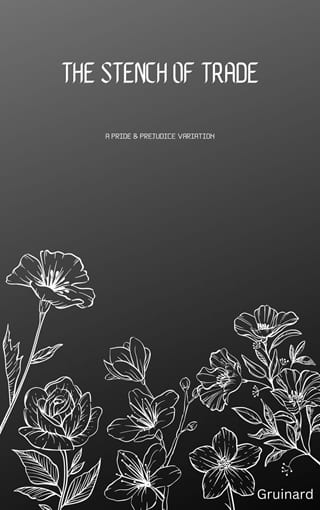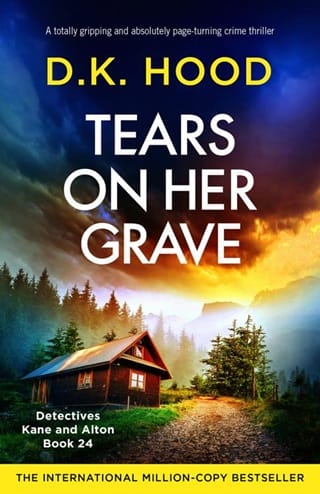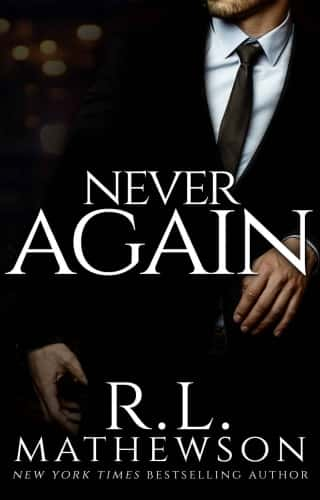Chapter 34: Epilogue
“Happy Anniversary my love.”
“55 years William, where have the years gone?”
At 84 and 76 years of age Fitzwilliam and Elizabeth Darcy were slowing down, had slowed down, physically but were still mentally sharp. The lived in a modest cottage on the outskirts of Paignton, a town in Devon on the south coast of the country. The arrival of the railway to the town eight years earlier in 1859 meant they could enjoy the milder climate but still be visited easily by their large family.
“So many things have changed since 1812, do you remember the first year of our marriage. We were interrupted within a week of getting married.”
It was the same reminiscence every year. The first year of marriage for the Darcys had been chaotic. There was no other word to describe it. It was well into July of 1812 before the extended family finally arrived at Pemberley. Mary and Catherine met with their new sister in London and the three of them made a tentative friendship. Georgiana now could spend time with two young women closer to her age while for the two Bennet sisters they had a guide for the world they were moving into. Georgiana was not the sort of person to mock or sneer at another and so they were the recipients of sincere and genuine advice. Having a second carriage on the journey north also meant that Elizabeth and Darcy were able to spend much of the journey alone, time that had been non-existent since Mary’s letter in the middle of June.
Pemberley, and the other small estates that Darcy owned, were well run but he never wavered from his promise to teach his wife. He explained every aspect of managing and running the estate to her. They knew that it would be the task of years to become fully knowledgeable but Darcy used the teachings of his father when working with Elizabeth. As he explained to her ‘it is practice for when I do the same thing with our children’.
Upon their return to London in early 1813 Catherine moved in with Sir Edward and his family. She had enjoyed the calm of the Pemberley estate but had been captivated by news within the letters from her eldest sister. Even although she was now 23 years of age, Jane Bennet was new to society, beautiful and with a dowry of £10,000. Half of that sum provided by the Darcys and half by Sir Edward. She was courted through the autumn and her engagement was announced that January. Her fiancé was the son of a director of the East India Company. Jane Henderson moved with her husband to India for seven years before they returned and settled in London. They had three sons.
Catherine waited to enter society with Georgiana and they made their curtsey to the Queen early in 1815 when she was already 19 and Georgiana was 18. Both made matches with sons of the nobility. Catherine married the heir to a Barony and they had four children who survived to adulthood; two daughters and two sons. Georgiana married the heir to an Earldom and while still a Viscountess bore him two sons and a daughter.
Mary Bennet never married. Within weeks of arriving at Pemberley Elizabeth had told her it was her home for as long as she wanted. When Lady Maria visited at Christmas in 1812 Mary had found her role model, a woman who had never married but who had enjoyed a full and productive life. Lady Maria’s first great love had been killed and she never found another. Mary did not go looking for love, at least romantic love. Instead she revelled in familial love, and the two sisters who had most felt the sting of Mrs. Bennet’s cruel words, created an oasis of happiness for themselves. Miss Bennet became the prominent face of the Darcy charity. She toured the estate, the local villages and towns, and even wider afield. She had been forced by the indolence of her father to undertake tenant visits at an early age. She spent the rest of her long life applying all the hard-learned lessons from her early teenage years. All of the Darcy children knew the responsibilities of their position, and not just the benefits. Aunt Mary was a role model for several generations.
Lady Maria Leonard lived past her 80 th birthday and with each passing year spent more and more time at Pemberley with Mary Bennet and Elizabeth Darcy. From the very first she had a suite of rooms permanently set aside for her in the family wing. She was not the mother of Mary or Elizabeth but she had played, and continued to play, that role.
Mr. Bennet’s most important achievement in the second half of his life was his longevity. Although only two years’ younger than Lady Maria he outlived her by more than 10 years, finally succumbing to old age having reaching 96 years old. He never left Cambridge in more than 40 years, the daughters who maintained personal contact visited him with his grandchildren and ultimately great grandchildren. Elizabeth was the only one of the four remaining daughters who did not visit. She wrote regularly to her father but their relationship was distant and overly formal. It was Mary who took her nieces and nephews to visit their grandfather. He was happy to see them but equally happy to see them leave. To call Thomas Bennet happy living a life in academia is a most severe understatement. The 21 years when he was the Master of Longbourn, he called them the lost years. He was a brilliant, if notoriously caustic, professor and he had returned to his one great love.
His longevity meant that Longbourn was leased to Elizabeth Darcy for more than 45 years. Thomas Bennet outlived both Mr. and Mrs. Collins and it was their third child, their only son, who inherited the estate upon Mr. Bennet’s ultimate demise. Elizabeth always argued that she had forgiven Charlotte Lucas but her actions gave question to that assertion. She may have forgiven Mrs. Collins but it was clear that the words of Mr. Collins on the morning of his proposal would never be forgiven. The first decade of her lease was spent returning Longbourn to its full potential as an estate. But as she maximised the return from the estate, she also maximised the amount of money she extracted from the estate. The manor house and the stables were kept maintained, but not a penny was spent adding to them, or conducting a major refurbishment. More money was spent on the tenant cottages than was spent on Longbourn Manor. It became a dated relic.
The key moment arose when Netherfield Park was put up for sale by the Upton family. The children of the owners from Elizabeth’s time did not want the estate and so Darcy and Elizabeth bought it. From then on, every agricultural advancement was bought and used at Netherfield Park, and was also leased out as needed to Longbourn. That estate did not invest in any additional machinery. The tenants did not care as they could use the various pieces of equipment from Netherfield Park. In fact, the estate had purchased extra machines for Longbourn’s use. Mr. Darcy, as the owner of Netherfield Park, charged Mrs. Darcy, as the lessor of Longbourn, for the use of the equipment. The returns from Longbourn were suppressed, and Netherfield Park benefited.
The entail of the Longbourn estate to heirs male had hung over the entire family throughout Elizabeth Bennet’s childhood and young adult years. It was the reason for her father’s indolence, her mother’s nerves, and the constantly mentioned worry of ‘the hedgerows’. The fault lay with her great grandfather who had instituted the clause in his will many decades earlier. But Elizabeth Darcy took her revenge where she could. The Rev. William Collins had arrived with greed in his eye, and based on the way he leered at her, lust in his heart. Every five years she met with her Uncle Philips as well as the Darcy attorney and reviewed the terms of the entail. She was scrupulous in meeting the terms but not one iota more. She took ruthless advantage of a significantly undervalued lease and left Longbourn stuck in the past. The tenants thrived, they had the use of all the latest machinery, but overall the estate remained trapped as if it was the last decade of the 18 th century rather than halfway through the 19 th . And the Collins had absolutely no recourse.
Before Charlotte Collins died she watched as her brother sold the Lucas estate to the Darcys, increasing the holdings of Netherfield Park, while she and her son still waited for Thomas Bennet to pass away. She never saw her son inherit, she pre-deceased Thomas Bennet by seven months. Within two years of finally inheriting Longbourn Matthew Collins sold the estate to the Darcys. They noted the irony that the first Master of the estate no longer constrained by the entail chose to sell almost immediately, the lack of investment for more than half a century impossible to overcome. Elizabeth and William’s third son became Master of the largest estate in north western Hertfordshire.
As for the missing Bennet daughter, Mrs. Brown, there was no news. Through the good offices of Colonel Fitzwilliam, Darcy and Elizabeth had narrowed Lydia’s husband down to Major Simon Brown. But he had perished within a month of returning to the Peninsula. Lydia from then on was a family mystery, her fate unknown.
The reality was having fraudulently married, and gotten away with it, Lydia was now free to legitimately be what she had pretended at her first wedding; an incredibly young war widow. And there was no shortage of men prepared to take her as a wife. She was still only 16 years of age and had endured the shortages and deprivations of life on campaign in Spain better than anyone back in Hertfordshire would ever have imagined. Major Brown was followed by Lt. Colonel Stockman, who in turn was followed by another Major, this time Major Wingdale. All were dead within two years, Major Wingdale perishing at The Battle of Toulouse, the final battle of The Peninsular War. Her final husband was a Naval Captain 15 years her senior. After he was paid off at the end of hostilities they emigrated to Canada. There they thrived running the largest brothel in Halifax.
In Hertfordshire, Lydia Bennet had been a flirt and there was speculation, even betting, as to when she would become a light-skirt. Lydia did not have the academic intelligence of her sister Elizabeth, but she was a clever woman in her own right. None would ever know it but the revelations after Wickham’s disappearance changed her attitude. Every one of her husbands were at least 15 years her senior. She followed the money. When Captain and Mrs. Fletcher arrived in Canada they quickly established the preeminent house of convenience in the city of Halifax. Despite all the speculation in her youth Lydia Bennet was faithful to her husbands. That other men were unfaithful to their wives at her establishment was not her concern. Their weakness led to the Fletchers leading a very comfortable life. She married three senior Army officers and a senior Naval officer, and lived a long and happy life. She had two sons with Captain Fletcher but none of the family ever returned to Britain.
There was one coincidence in the time before they met that Captain Fletcher and his wife never shared, having no idea that the prisoner was known to both. It was onto the then Commander Fletcher’s ship that Wickham had been pressed. He railed against his unjust impressment, as if there was any just impressment. However, Wickham was too sure of his own worth, his own right to the life he imagined and continued to plan to escape from his unjust servitude. But he made the mistake of talking mutiny within the hearing of a young Lieutenant on the ship. After Spithead and The Nore the Royal Navy had no mercy when it came to incitement to mutiny. George Wickham was strung up on the yard-arm and his corpse was consigned to the depths of the Mediterranean Sea after a short funeral service presided over by Commander Fletcher.
Elizabeth Darcy was warmly welcomed by all of Darcy’s family with one noticeable, and obvious, exception. She sat on her throne at Rosings Park, sulking and feeling betrayed by her family. Anne de Bourgh received regular letters from Elizabeth and occasional ones from Darcy. Despite the warning from her brother about Elizabeth’s connections Lady Catherine still felt it appropriate to send scathing letters to both Darcy and Elizabeth as their wedding neared. Darcy had been livid and was all for cutting communication with his aunt, not even an apology would do to appease his anger. Elizabeth, in the first demonstration of her ruthless nature, suggested the exact opposite. From the day of their wedding forward, every year the Darcy’s sent a birthday card to Lady Catherine, a Christmas note, and additional notes on the day of their engagement and the day of their wedding. The latter two were thank you notes to Lady Catherine for her help in assisting with the engagement and subsequent marriage of the Darcys. They always wrote ‘without your help we might never have become a couple’. They could not be accused of being insincere yet it was the very definition of disingenuous. She died a lonely bitter old woman towards the end of the decade, but at least it was not from apoplexy brought about by the Darcys’ frequent letters.
William Collins remained an obsequious windbag until the death of Lady Catherine. But Anne de Bourgh had no use for the idiotic man, although she was stuck with him as her parson as Livings are granted for life. He did improve somewhat, no longer being encouraged by Lady Catherine. He watched from afar, with impotent anger, at how Elizabeth was running Longbourn. There was no correspondence between them and Charlotte found out the news through Jane. He died in 1838, having been the heir of Longbourn for nearly 50 years. Other than the two weeks in the autumn of 1811 he was never welcomed to the estate.
Sir Edward Gardiner lived long enough to see his oldest two children marry. But the strain and the pain of his missing legs cut short his life and he passed away in 1821. His daughter Angela and his second son Michael were frequent and welcome guests at Pemberley. They and their families visited most summers and shared the Christmas holiday on occasion. When her father died Rebecca Gardiner moved to Pemberley to be with her cousin Lizzie, her husband and their six children. She asked her brother to assign her guardianship to Mr. Darcy and she was happy to escape London and live in the country. She eventually married a local man and was a close neighbour for the rest of her life. None of youngest three were particularly close with their eldest brother, Sir Edward Gardiner, 2 nd Baronet Bridge. He had his head turned by the title and the family’s advancement in society. Connections were maintained with him but the closeness of the other three highlighted the difference in relationship with their oldest brother.
As for our dear couple? It manifested itself in a myriad of ways but at their heart they both wanted someone who was different. Darcy did not want a simpering, giggling graduate of society’s approved school of female behaviour. And Elizabeth did not want a man who subscribed to the orthodoxy that no women was intelligent and had no place making any kind of decision other than the style and fabric of her gown.
Despite them both being unaware of the feelings of the other, never mind their own romantic blindness, they had found each other. Elizabeth never stopped being enraptured by the respect shown by her husband and Darcy never stopped being beguiled by the intelligence shown by his wife. The two of them had a loving and very passionate marriage. Eventually Mary and Mrs. Reynolds became inured to their antics but the Darcys made no attempt to disguise their love for each other.
It was not until after many years of marriage that Darcy fully understood his wife when it came to their family. They had eight children, all of whom survived to adulthood. There were also three miscarriages and one stillborn son, but they grieved and then focussed on their living children. But the Darcy family was not just their own children. Mary Bennet had a home at Pemberley all her life. Rebecca Gardiner lived there for a decade before marrying a near neighbour. Jane, Catherine and Georgiana, together with all their children, were always welcome. Lady Maria Leonard spent most of the last decade of her life as a guest at Pemberley.
Perhaps most uniquely, was the Darcys treatment of Robert and Claire Smith. Claire had started service with Edward Gardiner as a maid before nearly five years of daily dealings with Elizabeth Bennet had changed her role beyond all recognition. She was no longer her maid, but she was her bodyguard, close companion, and even friend. Claire Smith was a surrogate sister to Elizabeth when her own sisters were stuck in Hertfordshire. Just as Claire was her daily companion so was Robert. He was in effect, her personal footman. That too changed as he became her primary bodyguard on her daily visits to the more working-class areas of London. Since before Christmas of ’07 she had never left the house without the two of them as her chaperones and guards. Even when with Darcy during their engagement the two of them always accompanied her. And Claire and Robert Smith were in turn incredibly loyal to Elizabeth. Servants were normally not allowed to marry until both were older, often well into their 30s. Elizabeth had voiced no opposition to them marrying 15 years sooner than normal.
When a young lady marries it is normal for her companion to leave her service. She is now a married woman and no longer needs to be constantly chaperoned. Elizabeth would not countenance such a cold ‘reward’ for Claire Smith. From companion she seamlessly transitioned into her secretary, assisting both Elizabeth and Mary with their correspondence. In truth, there was very little that was seamless as both worked with Claire to improve her penmanship. But there was never any thought of replacing her. Robert Smith notionally remained a footman but became the head bodyguard for the family. Darcy recognised that although they were both servants, they were very much part of Elizabeth’s family. She had relied on them when she could rely on no one else.
Darcy had been an only child for the first 12 years of his life and was away at school during most of his sister’s own childhood. The early death of his mother, followed by that of his father just after graduation from Cambridge, meant he had few memories of immediate family at Pemberley. Elizabeth created that vibrant, slightly chaotic, version of family for them. It encompassed multiple generations but it was never anything but loving. It was her way of dealing with the memories of her own childhood, and those of her sister Mary.
This was only part of the legacy of Elizabeth’s childhood. The other part was her diligence with their finances and the importance of managing their legacy. She quickly took over the maintenance of the ledgers, she really was a natural at arithmetic. She was not greedy, far from it as her charitable giving demonstrated. But she had no patience for laziness or indolence. Again, the scars of her childhood, her mother’s near daily remonstrations about being ‘thrown out to live in the hedgerows’, had left their mark. She had spent four years assisting her uncle, working hard every day to have some control over her future. Elizabeth Darcy was industrious, ruthless when necessary as her actions with Longbourn showed, she worked hard to ensure that their children never had that worry. Yet at the same time, all of their children learned at the feet of their parents that they were expected to work hard.
And now as they neared the end of their lives they could look back with satisfaction at their achievements. But there was no doubt about what they were most proud.
Family.
As exemplified by the other two residents of their cottage. Mary Bennet and the now widowed Claire Smith had come south, both sisters to Elizabeth even if only one could claim it by blood.
Elizabeth Darcy spent her whole life putting family first.
 Fullepub
Fullepub 



